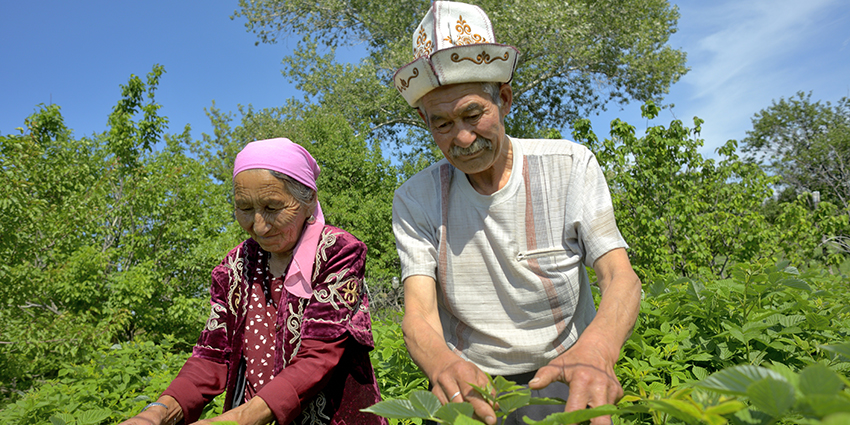Interview with Denis Khomyakov, CEO, OXUS Kyrgyzstan

Since the beginning of the Covid-19 crisis, the Grameen Crédit Agricole Foundation has worked on several initiatives to better support the microfinance sector. OXUS Kyrgyzstan is one of the microfinance institutions that has benefited from the Foundation’s response to the crisis. Five questions to Denis Khomyakov, CEO of OXUS Kyrgyzstan (OKG)
____________________
The Covid-19 crisis has strongly influenced Kyrgyzstan’s economy and your organisation. What measures have you adopted to cope with it?
The crisis has hit the economy and the health system of Kyrgyzstan hard. With border closures and lockdowns, industry and agriculture declined, and transport services collapsed. Although new activities emerged (such as delivery services), Covid-19 affected the country’s economy and by extension our clients and business.
In this context, we were well prepared at OKG. As early as February, we first protected our staff with home-based work or short time working at 2/3 of the salary; which involved the digitalisation of our activities. In May, we adopted both remote and on-site work, thanks to the required anti-Covid measures foreseen in the Covid-19 Business Continuity Plan (BCP), which quickly became operational.
We always made sure to communicate well. To achieve this, we first set up a Covid-19 Committee consisting of members from different departments and myself to structure communication and define operational measures. Several actions were taken: we organised communication with agencies and clients, established loan restructuring and client support, and decided to negotiate with lenders to obtain a grace period on repayments. We also had regular exchanges with various stakeholders: the governance that guided and advised us, the lenders who have done coordinated actions to ensure the continuity of our activities, and the National Bank that provided us with clarifications on the restructuring and exemptions possibilities.
What was the Foundation’s support to strengthen OKG’s response?
The Covid-19 surveys carried out by the Foundation were well organised and always took place at the right time. The Covid-19 Observatory launched by the Foundation, where the results of the surveys and other useful articles are published, has been valuable to us in assessing our situation and position in the region. The Foundation also led OKG’s group of lenders to implement the coordinated restructuring measures and extensions; at the Foundation’s instigation, with regular monitoring by Julie Serret, a Foundation’s Investment Manager, we acted immediately to prepare for the worst-case scenario and agreed terms with the lenders all together.
Which were the main measures implemented by this group of lenders?
The group of lenders decided to extend all payments payable between May and December 2020 for 12 months. The lenders also simplified reporting by collecting information through a common document, which gave us more time to focus on other issues. They also provided us with tools to create a BCP, to restart the business while protecting staff. As a result, we did not really worry about the liquidity situation. We were able to pay our staff salaries and benefits immediately.
What lessons do you draw from this period for the evolution of microfinance?
Here are my six commandments:
- Anticipate. Every business should have a BCP for these kind of events. Having an IT disaster recovery plan is very useful – it helped us a lot in reacting to the crisis and keeping the system running.
- Take care of the staff; inform them of the situation and the measures decided.
- Make decisions. Do not be too late but think twice.
- Inform investors and lenders of the situation and provide forecasts (detailed, even if you do not know how things will develop) for the coming months.
- Contact your Board of Directors often. Its composition and experience will enable you to get through any type of crisis.
- Be digital. Digital channels are valuable for communicating with clients and staff. Covid-19 has pushed us to think and to be more digital.
What are the prospects for OKG in 2021?
The company continues its development and growth. We plan to open two new branches in rural areas and to serve low-income clients. We plan to introduce tablets to speed up loan disbursement, but also to collect less paper and be more environmentally friendly. We also aim at developing green loans to help combat air pollution and intensive energy use in Kyrgyzstan.
Other initiatives such as our work on customer loyalty and the project to support women entrepreneurs initiated in early 2020 have been slowed down by the health crisis. We will take them up again. We will remain a reliable company for our clients, with a zero-exclusion approach!